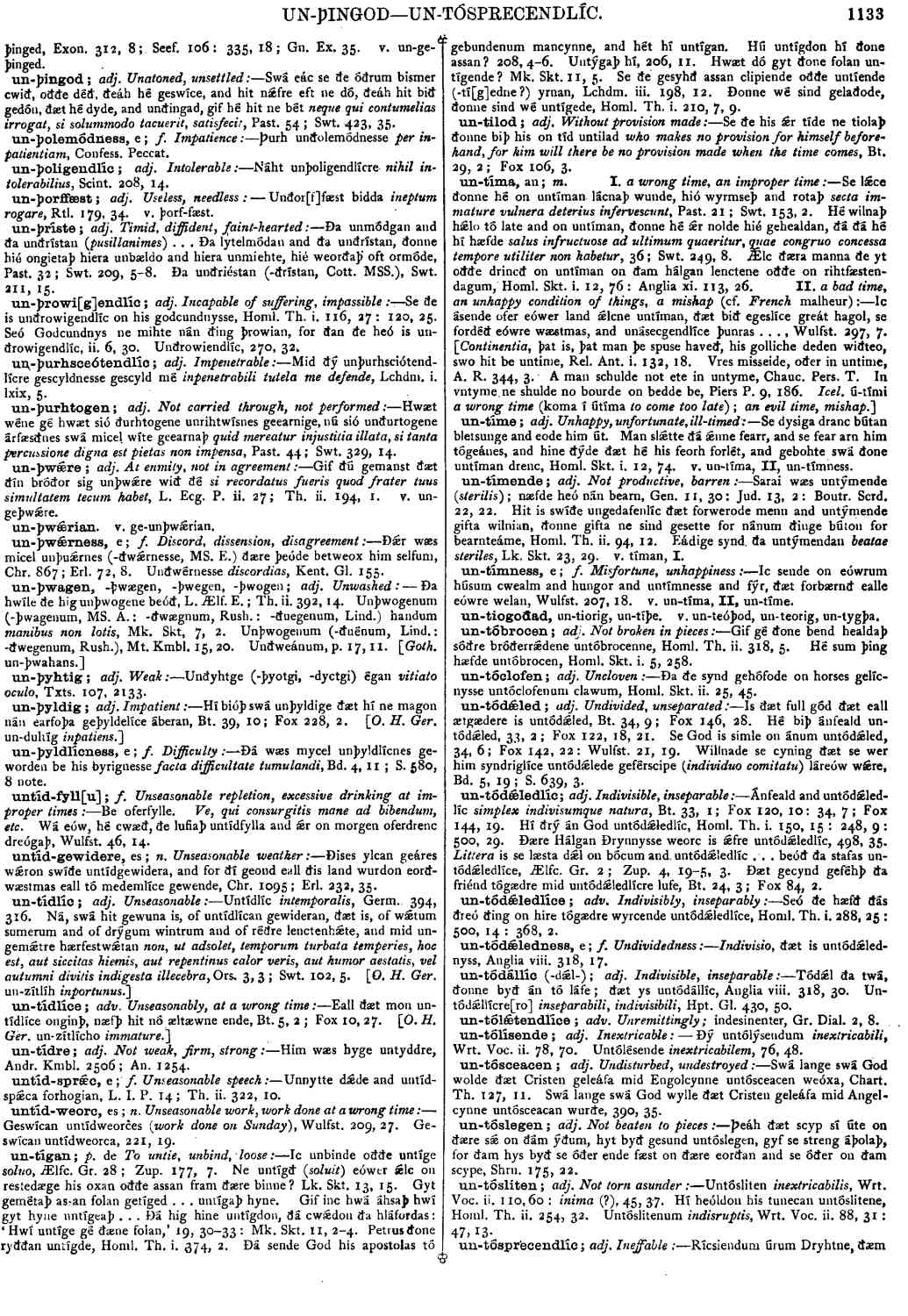un-tíma
- noun [ masculine ]
-
Se lǽce ðonne hé on untíman lácnaþ wunde, hió wyrmseþ and rotaþ
secta immature vulnera deterius infervescunt,
- Past. 21 ;
- Swt. 153, 2.
-
Hé wilnaþ hǽlo tó late and on untíman, ðonne hé ǽr nolde hié gehealdan, ðá dá hé hí hæfde
salus infructuose ad ultimum quaeritur, quae congruo concessa tempore utiliter non habetur,
- 36 ;
- Swt. 249, 8.
-
Ǽlc ðæra manna ðe yt oððe drincð on untíman on ðam hálgan lenctene oððe on rihtfæsten-dagum,
- Homl. Skt. i. 12, 76: Anglia xi. 113, 26.
-
Ic ásende ofer eówer land ǽlcne untíman, ðæt bið egeslíce greát hagol, se fordéð eówre wæstmas, and unásecgendlíce þunras...,
- Wulfst. 297, 7.
- Rel. Ant. i. 132, 18.
- A. R. 344, 3.
- Chauc. Pers. T.
- Piers P. 9, 186.
Bosworth, Joseph. “un-tíma.” In An Anglo-Saxon Dictionary Online, edited by Thomas Northcote Toller, Christ Sean, and Ondřej Tichy. Prague: Faculty of Arts, Charles University, 2014. https://bosworthtoller.com/33874.
Checked: 1